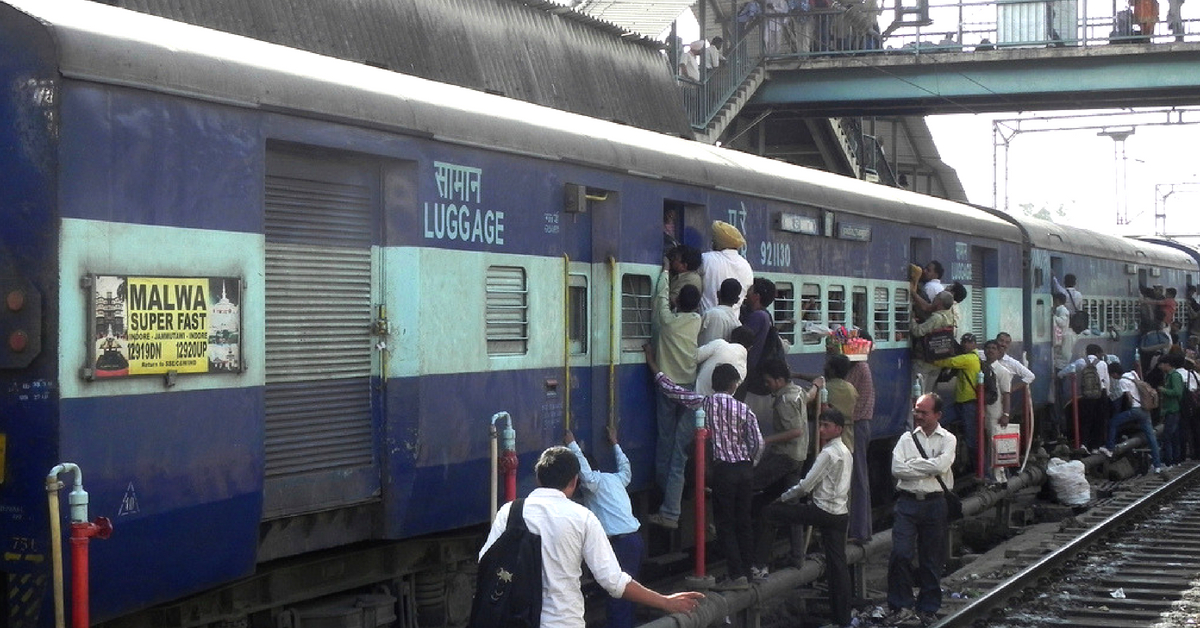Death/Injury While Getting on or off Train Entitles Passenger to Compensation: SC
The Railways are liable to compensate passengers and cannot refuse.

Railway accidents cause many deaths each year. In 2017, an RTI revealed that around 3,000 people lost their lives in train accidents in Mumbai alone. While the collective numbers are large, one must remember that each death, has affected in turn, a family. Well, some semblance of relief can be felt with Supreme Court ruling on Wednesday that the Railways would be liable to compensate passengers who lose their lives while boarding or de-boarding trains. Citing negligence on the passenger’s part is out of the question.
The matter has been in dispute for a while now, and the bench comprising Justices A K Goel and R F Nariman ruled that death or injury, occurring during boarding/de-boarding, is an ‘untoward incident’, and the victim is entitled to compensation.

Section 124A of the Railways Act 1989 says that a passenger who dies from suicide or attempted suicide, self-inflicted injury, criminal act or any act committed in an intoxicated or insane state is not entitled to compensation from the Railway Administration.
Contradictory verdicts have been presented by various high courts, with some ruling that injury or death during boarding or de-boarding due to the victim’s negligence, is at par with a self-inflicted injury. According to some of the High Courts, the railways were liable for such incidents.
The controversy finally saw closure, as the apex court ruled that the Railways is liable to pay compensation to victims. They reasoned that compensation is payable, irrespective of the fact that the Railway administration was, or wasn’t at fault, in the case of an untoward accident.
You may also like: Have an Idea to Improve the Indian Railways? You Could Win a Rs 10 Lakh Prize!
In the opinion of the court, the concept of ‘self-inflicted injury’ would require the passenger to have an intent to inflict such injury or harm upon himself. That couldn’t be within the scope of the rules and wasn’t a valid reason to deny compensation to a passenger.
(Edited by Shruti Singhal)
Like this story? Or have something to share? Write to us: [email protected], or connect with us on Facebook and Twitter.
NEW: Click here to get positive news on WhatsApp!
If you found our stories insightful, informative, or even just enjoyable, we invite you to consider making a voluntary payment to support the work we do at The Better India. Your contribution helps us continue producing quality content that educates, inspires, and drives positive change.
Choose one of the payment options below for your contribution-
By paying for the stories you value, you directly contribute to sustaining our efforts focused on making a difference in the world. Together, let’s ensure that impactful stories continue to be told and shared, enriching lives and communities alike.
Thank you for your support. Here are some frequently asked questions you might find helpful to know why you are contributing?


This story made me
-
97
-
121
-
89
-
167













